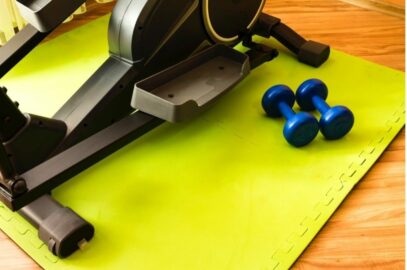Access Self Storage Blog
Things to Know Before Filing Your Taxes
Tax season can be a stressful time of year for first-timers and seasoned pros alike. But, filing your taxes doesn’t have to be a headache. If you understand the necessary...
Economy
Tax season can be a stressful time of year for first-timers and seasoned pros alike.
But, filing your taxes doesn’t have to be a headache. If you understand the necessary documents, key deadlines, and available resources, you can navigate tax season with confidence. We’ll break down everything you need to know before filing your taxes to help make the process as smooth as possible.
What Are the Documents Required For Filing Taxes
The documents you need to file your taxes depend on your income sources, employment status, and major life events from the past year. We’ve broken down the most common forms and paperwork you’ll need to gather before you start filing below:
Income
- W-2 – If you’re an employee, your employer will issue a W-2, detailing your annual wages and tax withholdings.
- 1099-NEC – If you’re self-employed or a freelancer, you’ll receive this form from any client who paid you more than $600 during the tax year.
- 1099-MISC – This form is used for miscellaneous income, such as rental property earnings, prizes, or royalties.
- 1099-K —Depending on the total amount received, you might receive this form if you received payments through third-party platforms like PayPal or Venmo.
- 1099-G – If you received unemployment benefits, this form details the amount you received and any taxes withheld.
- 1099-DIV and 1099-INT – If you earned dividends from investments or interest from a savings account, these forms report that income.
Deductions
There are many possible forms of deductions. We’ve listed three of the most common, but you should explore all your possible deduction opportunities.
- Form 1098 (Mortgage Interest Statement) – If you own a home, this form reports the mortgage interest you paid, which may be deductible.
- Charitable Donation Receipts – Keep records of charitable contributions, as they may be deductible if you itemize your taxes.
- Medical Expense Documentation – If you’ve had significant medical expenses that exceed a certain percentage of your income, you may be able to deduct them.
Other Important Documents
- Form 1095-A (Health Insurance Marketplace Statement) – If you purchased health insurance through the marketplace, you’ll need this form to reconcile any subsidies.
- Educational Forms (1098-T and 1098-E) – If you paid tuition or student loan interest, these forms report your eligible deductions or credits.
- State and Local Tax Documents – Some states require additional forms, so check for any local tax documents you might need.
- Social Security Number (or ITIN) – A valid taxpayer identification number is required for filing.
When is the Tax Filing Deadline?
The deadline to file your taxes is April 15th. Importantly, this is also the deadline to pay any remaining taxes owed to avoid late penalties.
June 17th is the deadline for U.S. citizens, including military personnel, to file their taxes while living abroad.
If you have filed for an extension, your deadline to submit your tax return is October 15th. However, we recommend that you file before this date. Late submissions could result in fees and penalties from the IRS.
Does the Tax Deadline Ever Change?
The deadline tends to remain the same year-over-year, but on occasion, the deadline can be pushed due to extenuating circumstances. This case happened only twice during the coronavirus pandemic:
- 2019 Tax Year (Filed in 2020): The deadline was extended from April 15, 2020, to July 15, 2020, as the pandemic first took hold.
- 2020 Tax Year (Filed in 2021): The deadline was moved from April 15, 2021, to May 17, 2021 due to the ongoing pandemic.
If you’re unsure about this year’s filing deadline, you can always check the IRS website for the most up-to-date information.
Is There a Penalty for Filing Taxes Late?
Yes, there is a penalty for filing late. The typical penalty is 5% of the unpaid taxes for each month your return is overdue, with a maximum cap of 25%.
If you owe taxes and fail to pay on time, the IRS will charge interest on the unpaid balance, which accrues daily. Or, if you go too long without filing, you may also receive a Failure to file penalty, which can add up quickly.
Steps for Filing a Tax Extension
If you need more time to file your taxes, you can request an extension. Here’s how to do it:
- Fill Out IRS Form 4868
- Submit Your Extension Request
- Pay Any Taxes You Owe
- Keep Your Confirmation
- File Your Tax Return by October 15th
The extension deadline is not a suggestion—it’s a hard deadline! To avoid additional penalties, make sure you file before October 15th.
How Much Does Filing Taxes Cost?
The cost of filing taxes varies depending on how you file.
If you use IRS Free File, there’s no cost to file federal taxes if you meet the income eligibility. Tax software services typically charge between $30 and $200, depending on the complexity of your return. If you hire a professional tax preparer, fees can range from $150 to over $500 based on your financial situation. Make sure to avoid common tax filing mistakes to ensure that your taxes are filed correctly.
Where Can I Store My Records?
If you run a company, are self-employed, or simply want to ensure your tax records are organized, secure, and well-guarded against the elements, a climate-controlled storage unit from Access Self Storage is for you.
With a wide range of sizes to fit any budget, you can keep your business records, equipment, and inventory, secure and in a storage facility that is accessible when you need them. Call us or use our online size guide to find the right fit for you.
Other Articles for You

Navigating the Challenges of Rising Economic Costs
Groceries are more expensive than they used to be. Home prices are significantly higher than they were a few years ago. Automotive prices are up, insurance rates are up, and…
Read
The Rundown on Types of Storage Containers and When to Use Them
Whether it's a box or a bag, you can store your belongings in almost anything. Plastic bins with lids come in handy for keeping things organized and secured, whereas bags are useful for storing bedding and old clothes. Every storage container serves a purpose, and Access Self Storage is here with tips on how to make the most of them as you store your things in Haledon, NJ.
Read
Where to Put Exercise Equipment That’s Consuming Space
A home gym sounds great at first—that is, until you realize there's no more room for storing your weights or elliptical. It's easy if you only have a few dumbbells, but it becomes more difficult when you have large exercise equipment. If you'll be using the great outdoors as your gym more than your indoor gym once the weather warms up, Access Self Storage in Oakland, NJ, has some tips on where to put your workout gear so you can clear up space around the house.
ReadTop 5 Storage Mistakes
Access Self Storage has been a leading industry expert since 1976. As I'm sure you can imagine, we have plenty of dos and don'ts collected from the travails of customers throughout our 44-year history. A poll of our employees has yielded our list of the Top 5 Storage Mistakes NOT to make:
Read